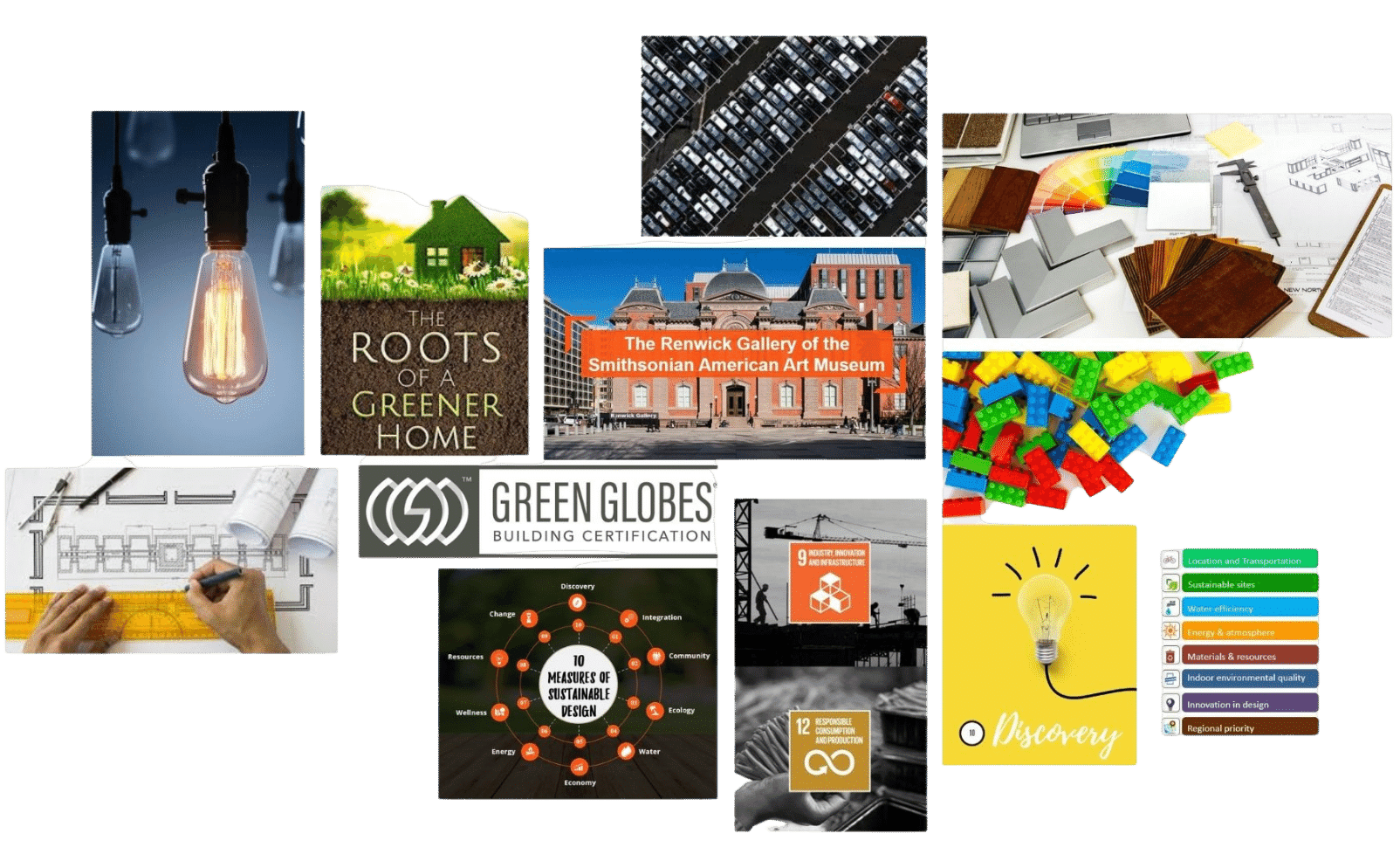The WELL Mind principle emphasizes the importance of fostering mental health by integrating specific policy, programmatic, and architectural design strategies. These strategies are meticulously crafted to address a myriad of factors that play pivotal roles in shaping cognitive and emotional well-being. This course delves deep into the 11 distinctive features that encapsulate the Mind principle, all within the framework of the WELL Building Standard v2. Participants will gain hands-on experience as they apply these strategies within the practical confines of a real-world project.
Mental health, often misconstrued as the mere absence of mental disorders, is genuinely a holistic state of well-being. It’s the vibrant thread that allows us to tap into our maximum potential, manage everyday life stresses, deliver productive outcomes at work, and actively partake in, and contribute to, our communities. It is an indispensable element of health that spans across all life phases, acting as the bedrock for the physical, social, and emotional prosperity of individuals, communities, and broader societies.
This course is nestled within GBRI’s comprehensive WELLopedia Series: a deep dive into the nuances of the WELL Building Standard v2. While this course is designed to stand independently, offering valuable insights into the Mind principle, it also seamlessly fits within the larger series for those interested in a more extensive exploration or for fulfilling credential maintenance prerequisites.
Learning objective:Top of Form
By the end of the Mind concept module, participants will:
- Grasp the core tenets of the Mind concept as outlined in the WELL Building Standard version 2.
- Delve into the socio-economic, biological, and environmental factors that profoundly influence mental health and overall well-being.
- Comprehend the global magnitude of mental health challenges and understand their ripple effects on holistic health.
- Acknowledge the pivotal role of natural elements, including biophilia, in rejuvenating the mind and enhancing well-being.
- Acquire actionable strategies and best practices to champion mental health across diverse arenas, from corporate spaces to educational hubs.
- Cultivate a nuanced understanding of the intricate ties binding mental health, sustainability, and the architecture of our surroundings.
Keyterms : Mental Health, WELL Building Standard, Mind Concept, Cognitive and Emotional Well-being, Biophilia, Mental Health Promotion, Nature and Place, Stress Management, Restorative Spaces, Restorative Opportunities, Tobacco Cessation, Substance Use Services, Mental Health Services, Mental Health Education, Design Strategies, Global Burden of Mental Health, Socioeconomic Determinants, Biological Determinants, Environmental Determinants.
The human mind, an intricate tapestry of thoughts, emotions, and capabilities, dictates every action we undertake and every potential we realize. Despite countless studies and scholarly articles, it remains an enigma, eluding complete understanding. Echoing John Milton's sentiment, the mind's capability to construct realities cannot be understated, emphasizing the profound truth behind the ancient adage: "A sound mind in a sound body." Mental health isn't just the absence of disorders but epitomizes a state where individuals thrive by managing life's stresses, working efficiently, and enriching their communities. This state is pivotal throughout life and is the linchpin of holistic health, affecting physical and societal dimensions.
Influenced by an amalgamation of socioeconomic, biological, and environmental determinants such as work conditions and lifestyle choices, the importance of mental health on a global scale cannot be underestimated. It accounts for 13% of the global disease burden with substance abuse further amplifying the challenge. Conditions like depression and anxiety rank high on global health challenges, with the former even exacerbating risks for several physical ailments. Alarmingly, individuals with mental health issues face mortality rates significantly higher than the average, losing a substantial amount of potential life years. Nearly 14.3% of global deaths, or eight million people annually, have links to mental health conditions.
Within the framework of addressing these challenges in the built environment, the WELL Building Standard emerges as a beacon. The WELL Mind concept, a facet of this standard, advances mental health through policies, programs, and design strategies, all converging on the myriad factors molding our cognitive and emotional states.
The intricate dynamics of the human psyche and its profound influence on daily function underscore the importance of mental well-being. Within this scope, the WELL Building Standard incorporates a meticulous approach to fostering mental health. Within this standard 11 features stand out, with two being essential preconditions for certification and nine as optional enhancements.Top of Form
| Preconditions (2) |
|
|
|
| Optimization (9) |
|
|
|
|
|
|
|
|
|
|
|
|
|
|
|
|
- Mental Health Promotion: This crucial precondition is designed to actively bolster mental well-being by endorsing supportive programs, policies, and resources. It mandates projects to furnish resources that uplift and champion the mental health of occupants.
- Nature and Place: Nature, with its calming influence, combined with elements like plants and daylight, offers numerous health benefits. This precondition emphasizes the importance of biophilic design, especially given our increasingly urbanized settings. The goal is to infuse nature within projects, celebrating their distinct identity, and fostering human delight.
- Mental Health Services: As the first optimization, while health care promotion is pivotal, it's also essential to offer mental health services. The aim is to raise awareness of mental health conditions and provide supportive workplace services. This feature mandates projects to back occupant mental health via suitable programs and resources.
- Mental Health Education: Recognizing the pervasive need for broader knowledge about mental health conditions, this optimization seeks to dispel ignorance and reduce stigma. The objective is to foster mental health literacy via training and educational offerings. Essentially, it extends the reach of the first precondition by emphasizing mental health awareness through education.
- Stress Management: Stress, a prevalent factor in numerous health ailments, necessitates effective management. Projects are required to evaluate and devise strategies for stress alleviation. The end goal is to pinpoint workplace stressors and implement a comprehensive stress management blueprint.
- Restorative Opportunities: Post managing stress, the focus shifts to rejuvenation. Consider this alongside features 7 and 8, emphasizing restoration. The aim is to support recovery from work stresses by advocating for sleep, regular breaks, and ample paid leave, ensuring a healthy work-life equilibrium.
- Restorative Spaces: With recovery initiated, projects should spotlight spaces that are restorative. Such areas should be designed to alleviate mental fatigue and stress, offering occupants an environment conducive to mental rejuvenation.
- Restorative Programming: Complementing restorative spaces, there's a need for systematic programs centered on relaxation and mindfulness, like meditation. Projects should facilitate such programs, helping occupants find relief from mental fatigue.
- Enhanced Access to Nature: While the inherent benefits of nature were touched upon earlier, this optimization stresses a heightened incorporation of nature in both interior and exterior designs. This encompasses not just design elements but also panoramic views and proximate natural spaces, such as parks or water bodies.
- Tobacco Cessation: Acknowledging the global health peril posed by tobacco, projects retailing goods are advised to limit the sale and promotion of tobacco products. Additionally, workplaces should facilitate tobacco cessation support, considering the significant interest among smokers in quitting.
- Substance Use Services: With alcohol and drug use being significant contributors to global health challenges, this optimization underscores the necessity of workplace policies on substance use. Projects should focus on education about substance abuse and ensure access to relevant support services, aiming to preempt and tackle substance addiction among occupants.










